Futureproof RDI partnership
Salla Sipari, Nea Vänskä, Sari Helenius
Salla Sipari, Nea Vänskä, Sari Helenius
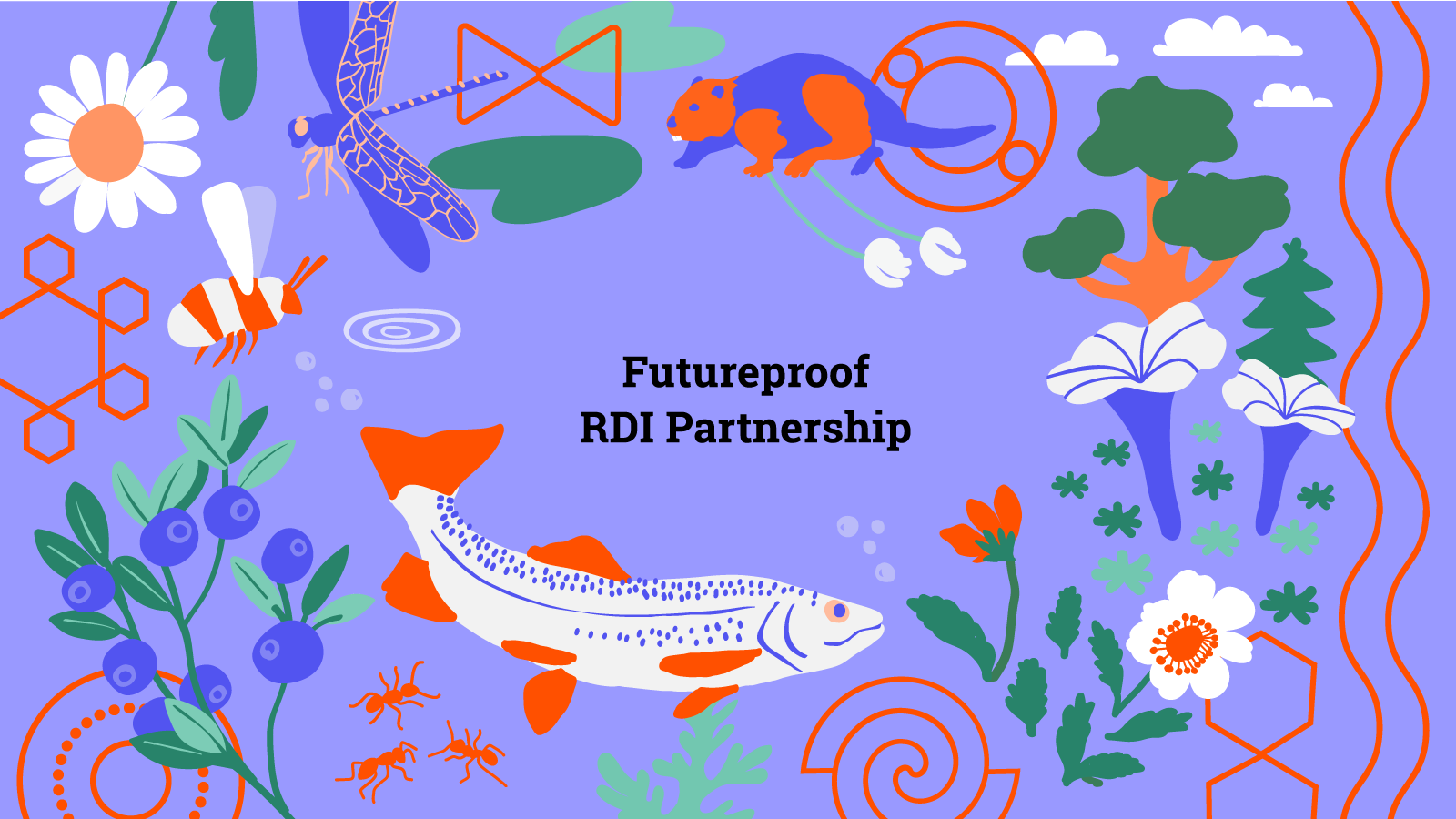
Table of contents – Futureproof RDI Partnership

The solutions that shape our future are being made today. The most impactful solutions are built on the integration of RDI activities − research, development and innovation − and collective learning. Through phenomenon-based RDI ecosystems, significant positive change can be created, promoting sustainable development. Future impact arises from the combined efforts of various stakeholders, actors, and RDI processes and their outcomes. Crucial to this concept is the diverse collaboration founded on impactful partnerships.
RDI partnership have been systematically developed over a multi-phase, research-based process at Metropolia University of Applied Sciences and its networks. An impactful RDI partnership contains open, reciprocal, and collaborative learning aimed at advancing a good and sustainable future by producing innovative solutions. This forms a comprehensive RDI partnership with collective learning that influence the future.
RDI partnerships have been boldly embarked on creating transdisciplinary and systemic future impact, based on a shared vision and hope for the future.
RDI Vision
Our aspiration for goodness − we share a vision to promote a better future inclusively and comprehensively.
RDI Future hope
Belief in a sustainable future − in collaboration, we have the opportunity to change the world towards responsibility and improvement, with foresight to achieve this.
RDI Transdisciplinarity
Diverse expertise − we invite citizens, service and product users, students, teachers, researchers, developers, decision-makers and other stakeholders to partnerships, working towards a common goal across different disciplines and areas of specialisation, guided by phenomena-based approaches.
RDI Systemic emergence
Interactively evolving solutions − together, we influence the future by creating new solutions and transformative learning, anticipating change.
The guiding promise of a futureproof RDI partnership, encouraging responsible change towards a desirable future:
I am valued, and my expertise is useful in matters meaningful to me when I belong to a community committed to good and act resolutely for a sustainable future, respecting and promoting the Earth's carrying capacity.
Futureproof RDI partnership manifests on several levels: 1) as meaningful impacts for individuals in their daily lives, 2) as community impact on local communities and environments, 3) as societal impact, 4) as global impact, 5) as planetary impact on human habitats. Futureproof RDI partnership operates on micro, meso, macro and planetary level (Figure 1).
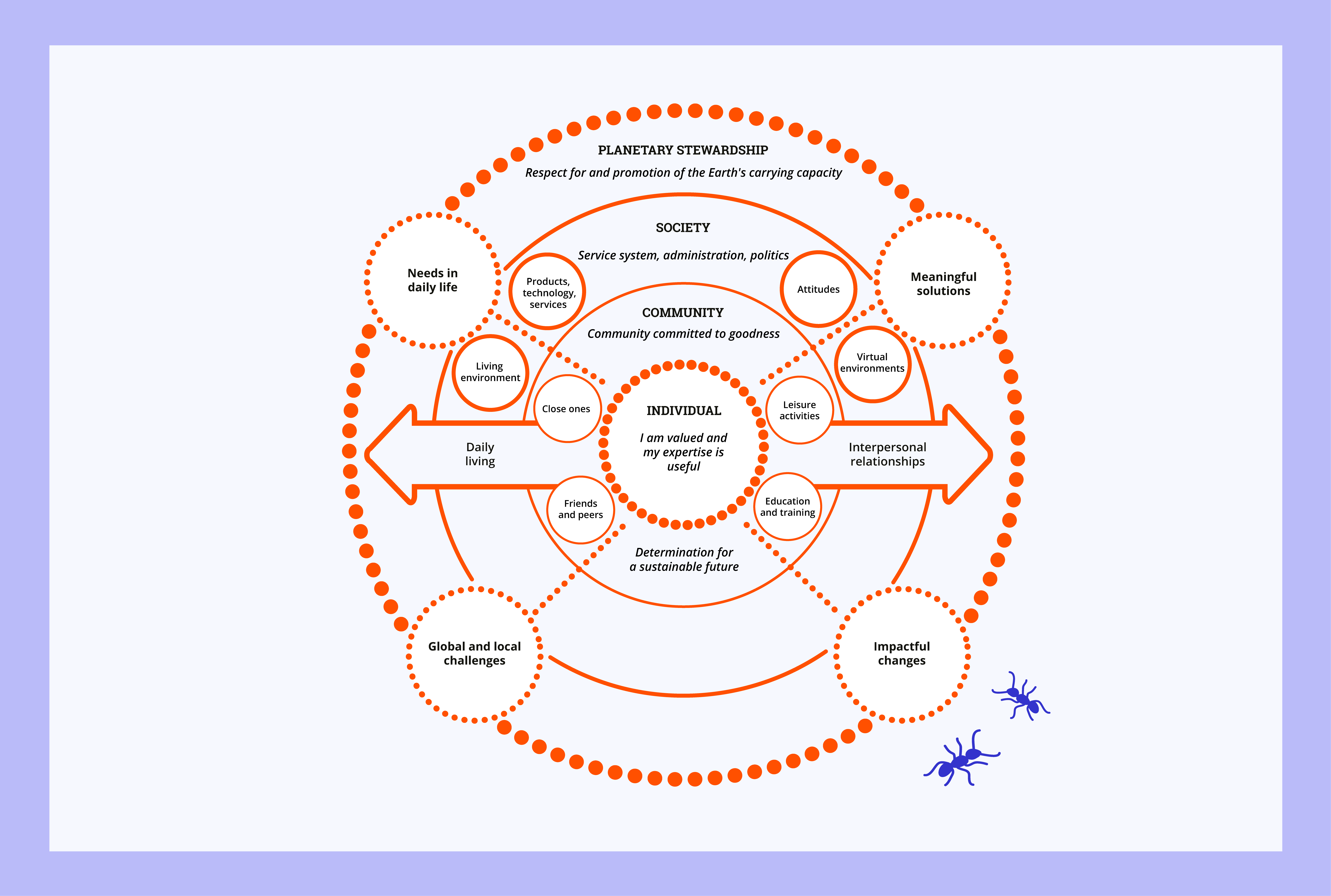
Figure 1. Systemic whole of the Futureproof RDI partnership.
Futureproof RDI partnership aims for significant changes by addressing global challenges and societal issues while promoting the Earth's carrying capacity. Meaningful solutions are developed in daily life, responding to emerging needs.
The benefits of partnership-based collaboration emphasise the enhancement of holistic expertise, the creation of enriching ecosystems, the accumulation of social capital, and diverse and expanding influence − towards innovative and sustainable solution capabilities and capacities.
The participatory RDI partnership framework, evaluation, and concrete action model have been developed for use in futureproof RDI partnerships, networks, and ecosystems.
Explore and join us in shaping a desirable and worthwhile future!

Participatory RDI partnership is an orientation to an RDI operational culture. It describes the relationship and approach to understanding and implementing RDI collaboration. Participatory RDI partnership can be utilised and applied in various approaches, settings, and methods that require and benefit from collaboration. The RDI operational culture is shaped through collaboration and in relation to the operating environment.
Participatory RDI partnership involves partnership-based collaboration among diverse actors, such as researchers, developers, teachers, students, professionals, service users, citizens, and other stakeholders, around a common topic of interest at all stages of the RDI process. This reinforces the significance, usability, and impact of the entire process. At the same time, participatory RDI partnership continuously generates sustainable well-being for its participants through the interaction of three core elements: equitable participation, systemic emergence, and diverse competences (Figure 2).
In participatory RDI partnership, equitable participation of diverse actors is facilitated in all phases of the change process (see process model in chapter 4). Participatory RDI partnership embodies systemic emergence as continuous co-learning and new holistic solutions. Diversity is leveraged by combining each actor's unique expertise, skills, and resources to advance the common cause.
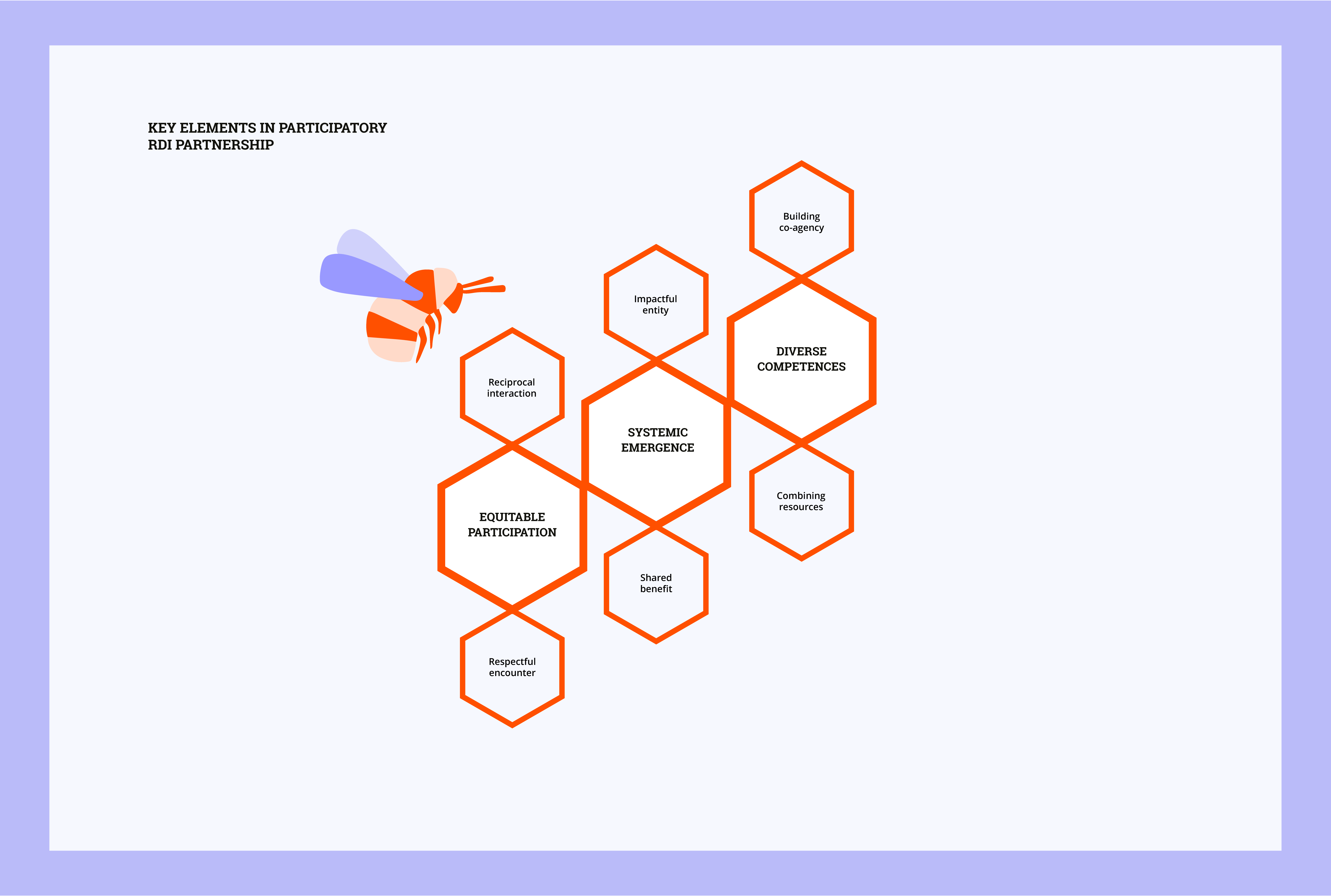
Figure 2. Key elements in Participatory RDI partnership.
– Reciprocal interaction and respectful encounters
Equitable participation is facilitated flexibly according to the individual capabilities and needs of each actor. Actors value each other, and encounters are fair, just, and positive. Equitable participation is based on reciprocity, where actors actively engage in activities and contribute to creating trusting and authentic relationship, being open to learn, and influence each other.
– Impactful entity and shared benefit
Systemic emergence arises from the interaction of various factors when addressing complex phenomena and producing meaningful impacts that meet needs. In emergence, incompleteness is utilised as a resource, allowing for unexpected and new solutions. Collaboration contributes to responsible change, ensuring the continuity of development in expanding networks while anticipating the future and the benefits of collaboration for all actors. Collaboration empowers its participants, bringing joy and well-being. Systemic emergence promotes continuous learning through reflective interaction.
– Building co-agency and combining resources
In partnership-based collaboration, the strengths of actors are identified in pursuit of a common cause. Networks are built and synergy is created, generating new collectively built expertise to achieve common goals. Partners create co-agency by committing to collaboration, strengthening mutual understanding and shared decision-making. Partners agree on shared ownership of results, roles, tasks, and methods as needed. (Figure 3.)
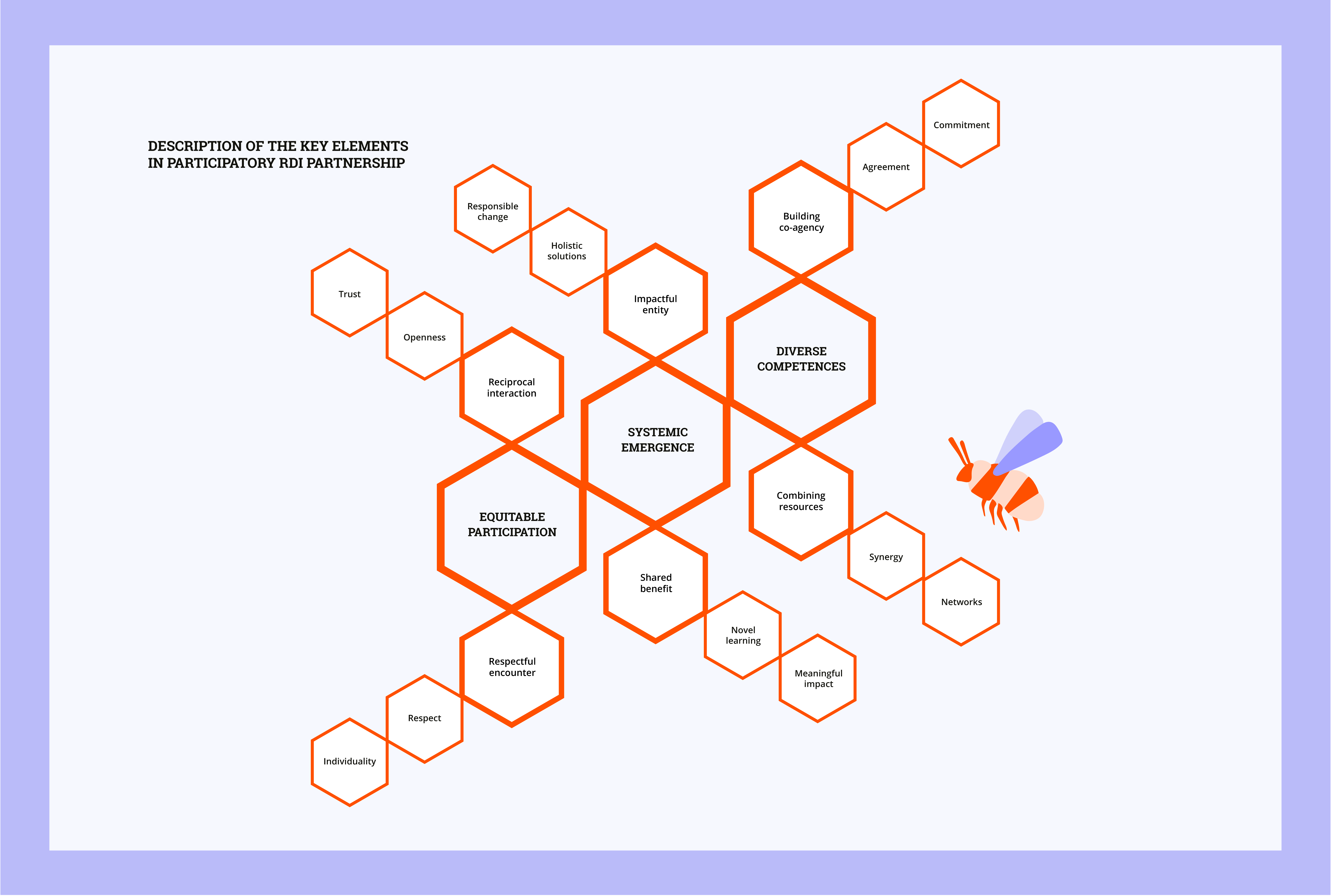
Figure 3. Description of the key elements in Participatory RDI partnership.
Creating favourable conditions, inclusive environment and authentic relationships are necessary for participatory RDI partnership and can be strengthened through developmental evaluation.
– Contextual Sensitivity
Implementing participatory RDI partnership requires recognising the specific contextual nuances together. Participatory RDI partnerships are not built the same way in different environments. Therefore, stakeholders must collaboratively evaluate and consider the following structural and resource factors:
Time: Requires a temporal investment. Can existing tasks be utilised, or is a separate time resource needed?
Funding: Requires financial investment, especially in the initiation phase. Is it included in the basic funding of operations, or is a separate financial resource needed, and where will it come from?
Meeting Places: Availability, accessibility, and inclusivity of venues, as well as regular meetings. Are the spaces functional for all participants, or do they need improvement or perhaps entirely new spaces or remote and digital participation opportunities?
Leadership: The active leadership of every stakeholder – shared decision-making and responsibility – is crucial. Leadership's role is to organize and promote collaboration and ensure consistent progress. Is there the necessary leadership competence and capability, shared leadership, or is there a need for joint learning or new stakeholders in this area?
Evaluation is carried out throughout the entire process using multiple methods and perspectives to recognise impact. Participatory RDI partnership can be assessed using developmental evaluation and a shared evaluation (Participatory RDI partnership evaluation, Theseus).
The concept of participatory significance emphasises that participation in collaboration is enabled according to each stakeholder's resources, promoting active involvement in various activities and stages of the change process. Participants are not merely a target group to be facilitated to produce information under specific conditions (such as participating in a research process defined, conducted and led by researchers for the use of researchers). Participatory RDI partnership is also understood in another sense, where the RDI partnership purposefully engages in influencing at different micro, meso and macro levels. The concept of partnership describes the nature of the collaboration, defining the concrete features, characteristics and nature of the collaborative effort (see Figure 3).

The purpose of the evaluation is to develop collaboration in participatory RDI partnerships. The evaluation guides the description of the implementation of the core elements of participatory RDI partnership. Based on these descriptions, factors contributing to success and those requiring reinforcement are identified. The evaluation results can be used to promote the use of best practices and to plan necessary changes in the development of collaboration. Through evaluation, stakeholders have the opportunity to influence the development of collaboration and strengthen their commitment to it.
The evaluation targets the core elements of participatory RDI partnership: equitable participation, systemic emergence, and diverse competences. Evaluation criteria have been defined for these elements, describing how participatory RDI partnership is realised. These criteria are compiled in the evaluation framework (Figure 4).
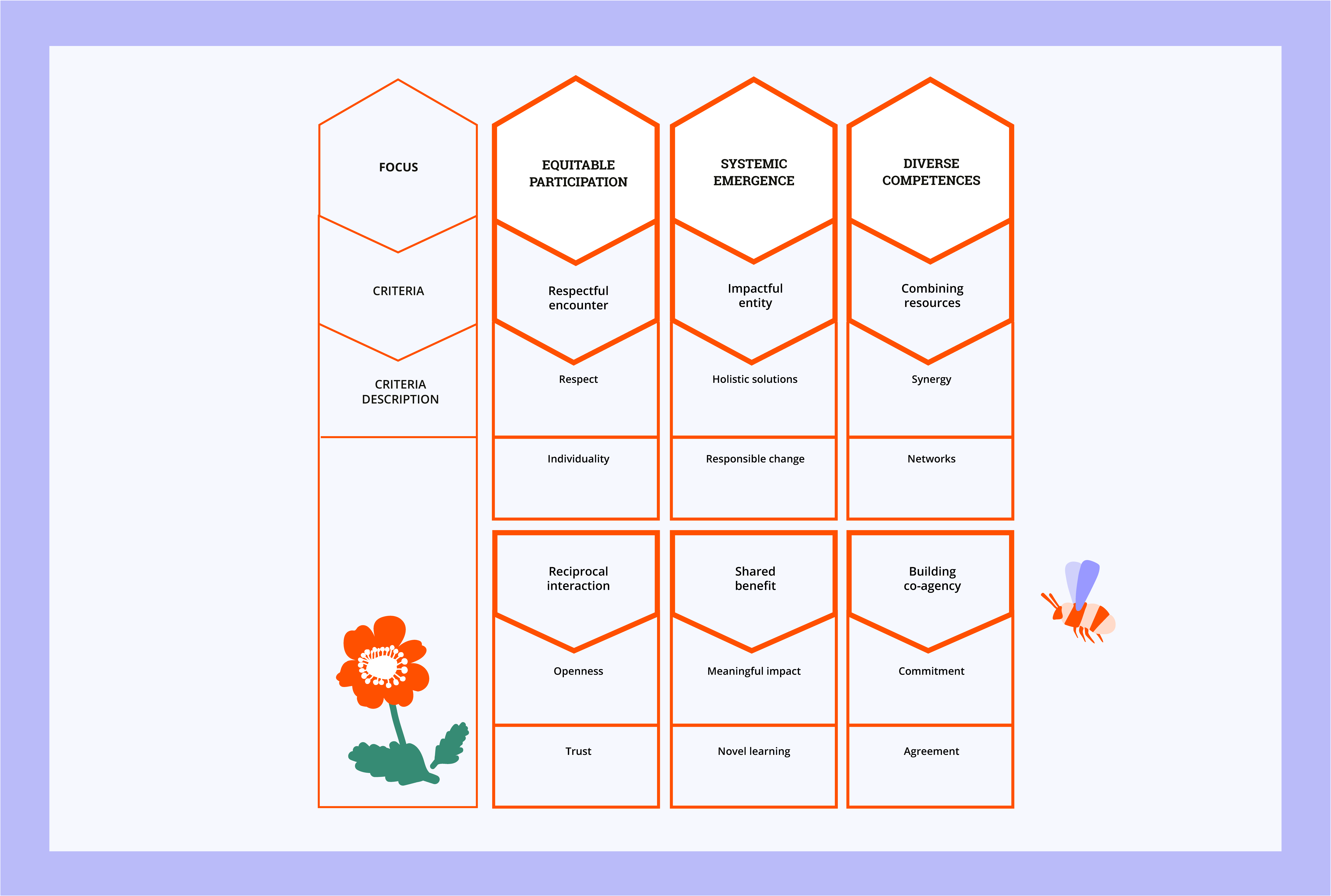
Figure 4. Participatory RDI partnership evaluation framework.
Instructions and forms for the evaluation of participatory RDI partnership can be found in the publication:
Sipari, S., Vänskä, N. & Helenius, S. 2024 Participatory RDI partnership evaluation (Theseus)

The Participatory RDI Partnership Model (Figure 5) describes partnership-based collaboration in the interconnected and interactive phases of the RDI process. The model is applicable to various RDI projects and activities.
The Participatory RDI Partnership Model is based on a research-driven development process conducted in the REcoRDI project from 2019 to 2022, within the context of applied rehabilitation research. The model and its templates have been further developed and applied to phenomenon-based and multidisciplinary RDI activities in Metropolia's national and international networks during the Hytke project from 2021 to 2024.
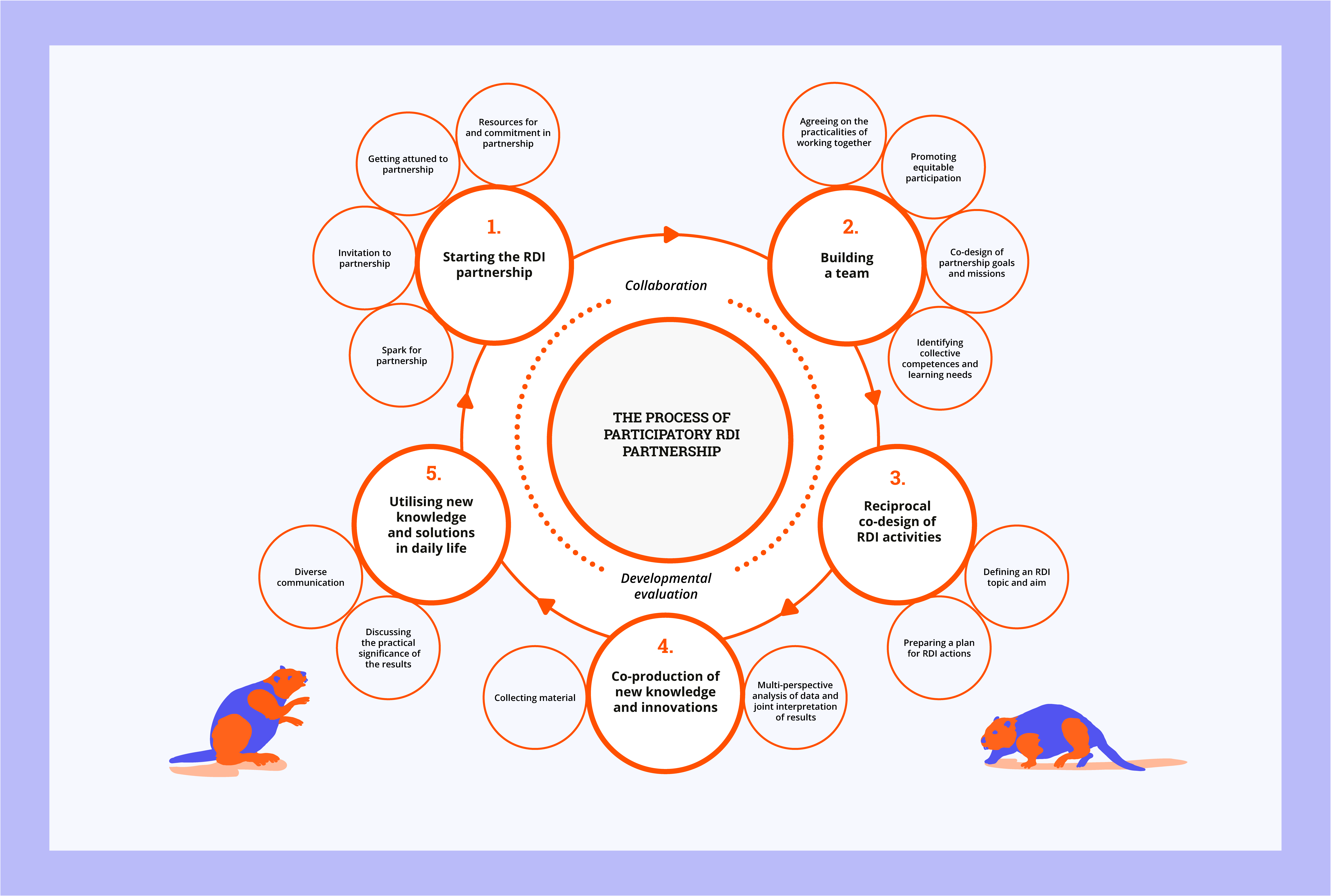
Figure 5. Participatory RDI Partnership Model (inspired by Sipari et al. 2022).
You can read more about the background of the participatory R&D partnership model in the publications:
See video about participatory research partnership made by an expert by experience:
Väisänen, S. 2022. Participatory Research Partnership in Rehabilitation (YouTube)

The results and impacts of developing a participatory RDI partnership operating culture have been diverse. Their utilisation has spread widely, creating future-oriented impact across multiple dimensions (Figure 6).
Nearly 80 events and workshops were held during 2021–2023 in national and international networks, with over 1700 participants. Of these events, 11 were scientific conferences both in Finland and abroad. The events and workshops emphasised interactivity and facilitation of co-creation and knowledge enrichment. For instance, the Futures Arena conducted in partnership with four Metropolia projects (5/2023) proved to be an excellent concept. The Futures Arena (hytke.metropolia.fi) is an event where a positive future is collaboratively built and partnerships in networks are strengthened.
Dissemination activities were extensive and diverse:
Participatory RDI partnership has been successfully integrated into RDI-related education and learning, including content for study courses that enhance RDI and transdisciplinary collaboration skills. RDI expertise and activities were strengthened through curriculum-based development activities across various degree programs, joint publications with students, and an international developmental training process for participatory RDI partnership. A key outcome of the project is a new 5-credit module-structured course.
Thirteen different projects and project ideas from Metropolia piloted the participatory RDI partnership. The piloting process implemented the participatory RDI partnership, producing evaluation data on the benefits and challenges of partnership-based RDI activities.
During the development activities, project proposals were produced, some of which received positive funding decisions and thus implemented the participatory RDI partnership in new projects. The results and model of the participatory RDI partnership have been utilised and applied in various national and international networks and their publications. In diverse RDI partnerships, the impact continues to strengthen, and the results spread to new networks.
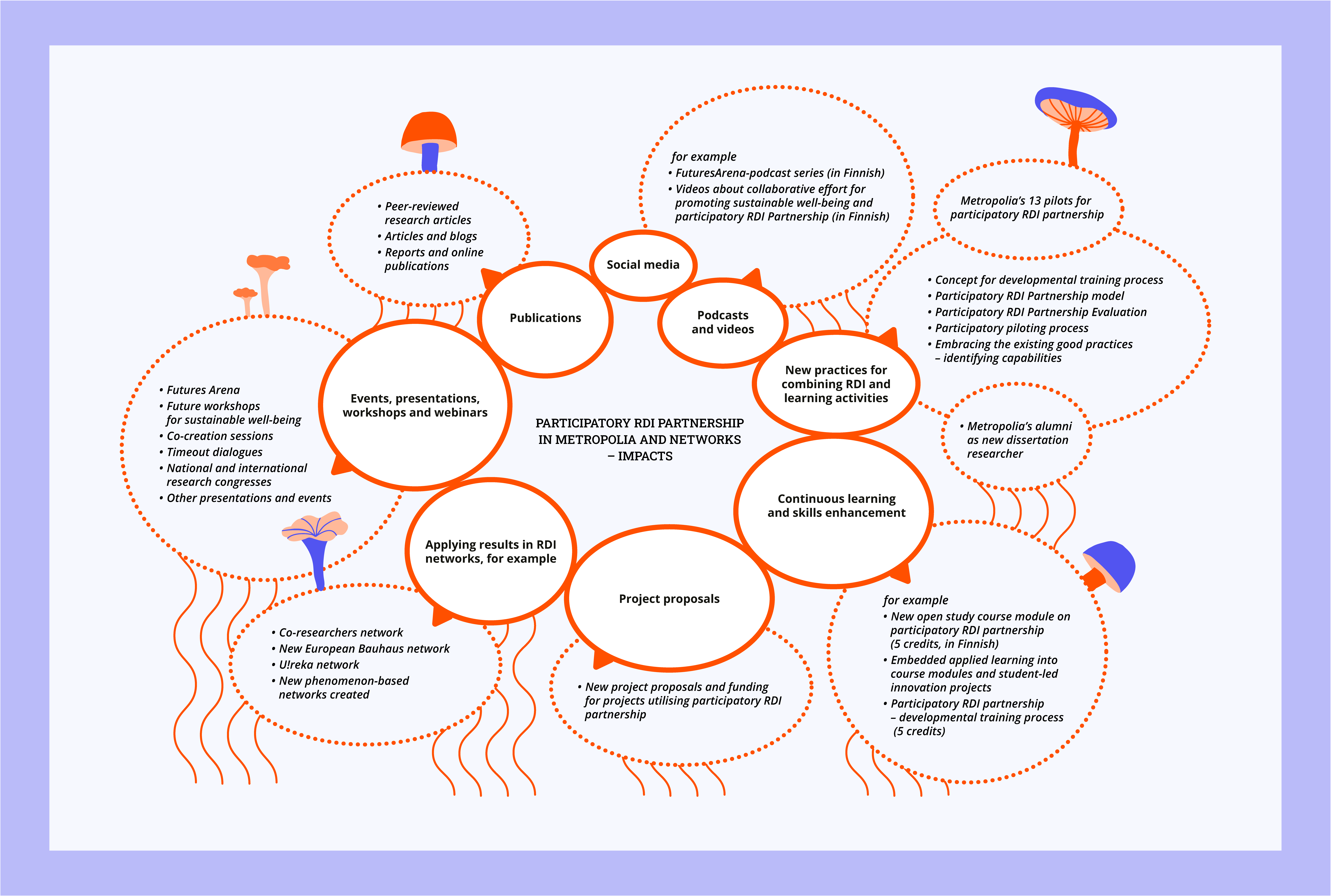
Figure 6. Participatory RDI Partnership in Metropolia and networks – impacts.

The participatory RDI partnership was co-developed in a multidisciplinary manner at Metropolia University of Applied Sciences and within its national and international networks between 2021 and 2024. The research-based development process was multifaceted and included the identification and definition of best practices and tools from both literature and the everyday activities of RDI experts.
Throughout the development process, participatory RDI partnership was applied in practice and evaluated. Research collaboration with the University of Eastern Finland and Demos Helsinki further strengthened the development of participatory RDI partnership (Figure 7).
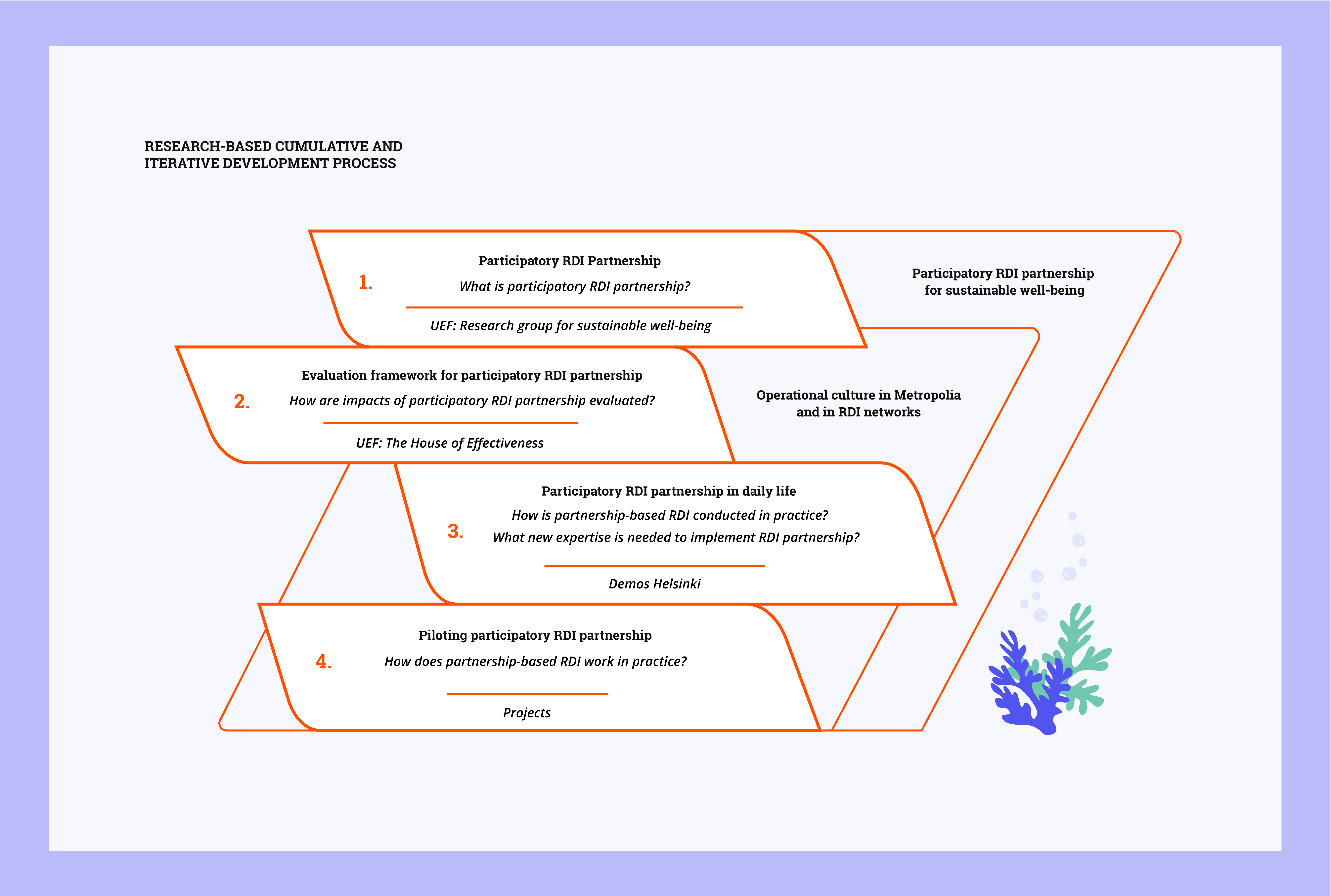
Figure 7. Research-based cumulative and iterative development process.
The collection of research data for the development of participatory RDI partnership was carried out through individual and group interviews, which helped identify the core elements of participatory RDI partnership and created a framework for developmental evaluation. The materials and summaries from events, workshops and co-creation sessions were utilised in the development process. Events and the developmental training process for participatory RDI partnership enabled development in expanding networks, also internationally.
Events and workshops that brought together experts from various fields, researchers, developers, students, experts by experience, and other stakeholders exemplified participatory RDI partnership in practice through multidimensional perspectives, collective knowledge building, and collaborative learning. The synthesis of the produced data refined and generated new conceptual frameworks for participatory RDI partnership.
Research, development, and innovation (RDI) activities were closely linked to learning (RDIL), as students participated in multidisciplinary development of participatory RDI partnership. At the same time, they applied it in practice within their communities and networks, promoting a participatory RDI culture.
The development of participatory RDI partnership was related to the profiling of RDI activities of Metropolia University of Applied Sciences. The development was multi-level, as new RDI collaboration was built together with Metropolia's innovation hubs’ leadership team, management team, and the project's external steering group. Building a common understanding relied on collaboration within the project team and the implementation of developmental evaluation from the project's initiation to completion.
Understanding of participatory RDI partnership evolved and deepened between 2021 and 2024. Multifaceted and multi-level evaluations guided the direction of development. The results of research-based development crystallised into the form of participatory RDI partnership to be utilised in future-oriented RDI partnership activities (Figure 8).
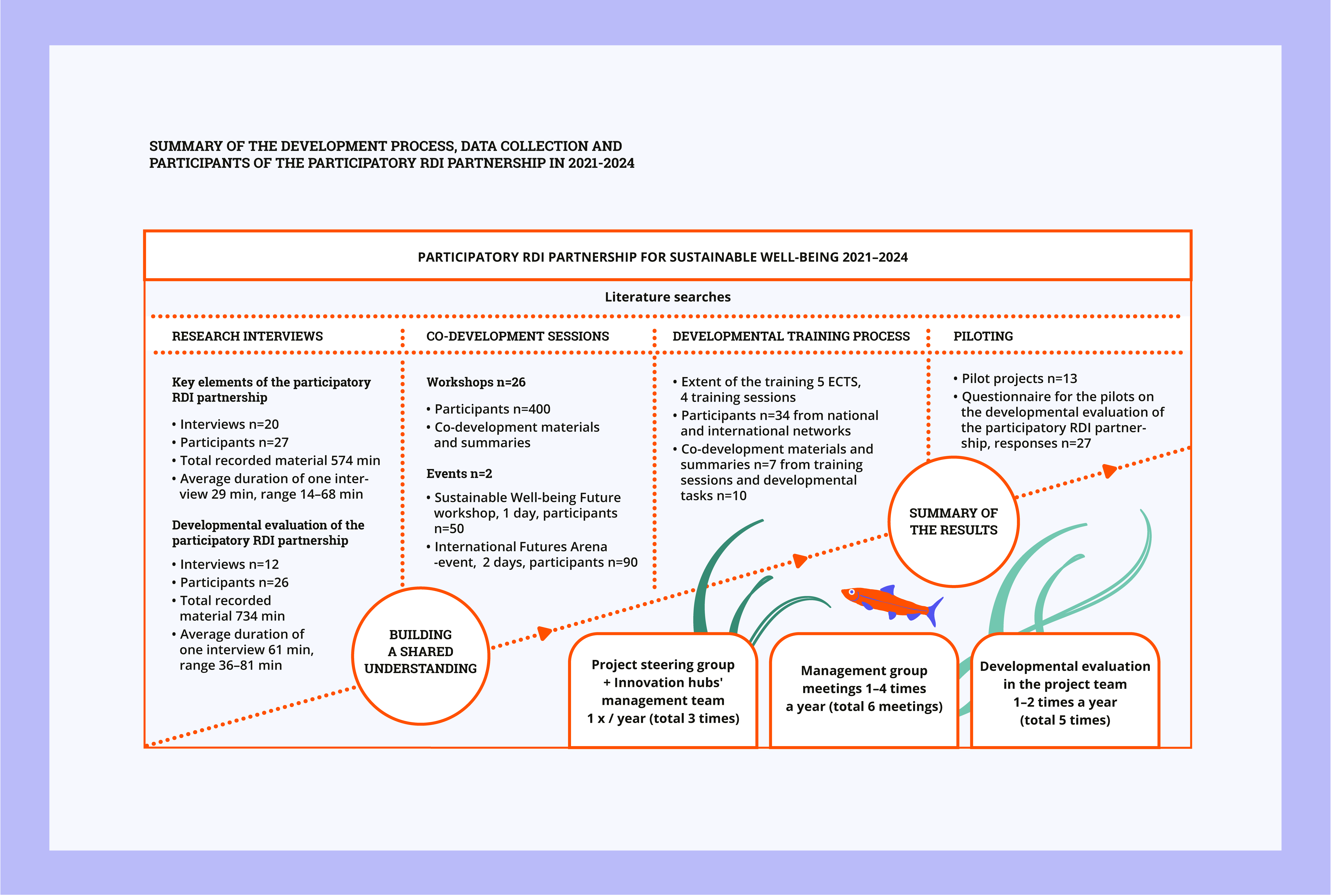
Figure 8. Summary of the development process, data collection and participants of the Participatory RDI partnership in 2021-2024.
See all publications compiled in the Finnish version of this publication.
The concept of participatory RDI partnership was developed at Metropolia University of Applied Sciences and its interdisciplinary networks over a period of three years. Evaluation was conducted using Metropolia's 3x3 evaluation approach, which involved assessment at the 1) initiation, 2) middle, and 3) end of the development process, considering three different perspectives: 1) the project team, 2) the external steering group and Metropolia's RDI management, and 3) the participant network.
For each phase of the evaluation, evaluation objectives and assessment questions were formulated. They are illustrated in Figure 9. These evaluation phases and associated assessment questions provided a structured approach to assessing the development and implementation of the participatory RDI partnership concept, ensuring comprehensive feedback and insights at each stage of the process that guided the development forward.
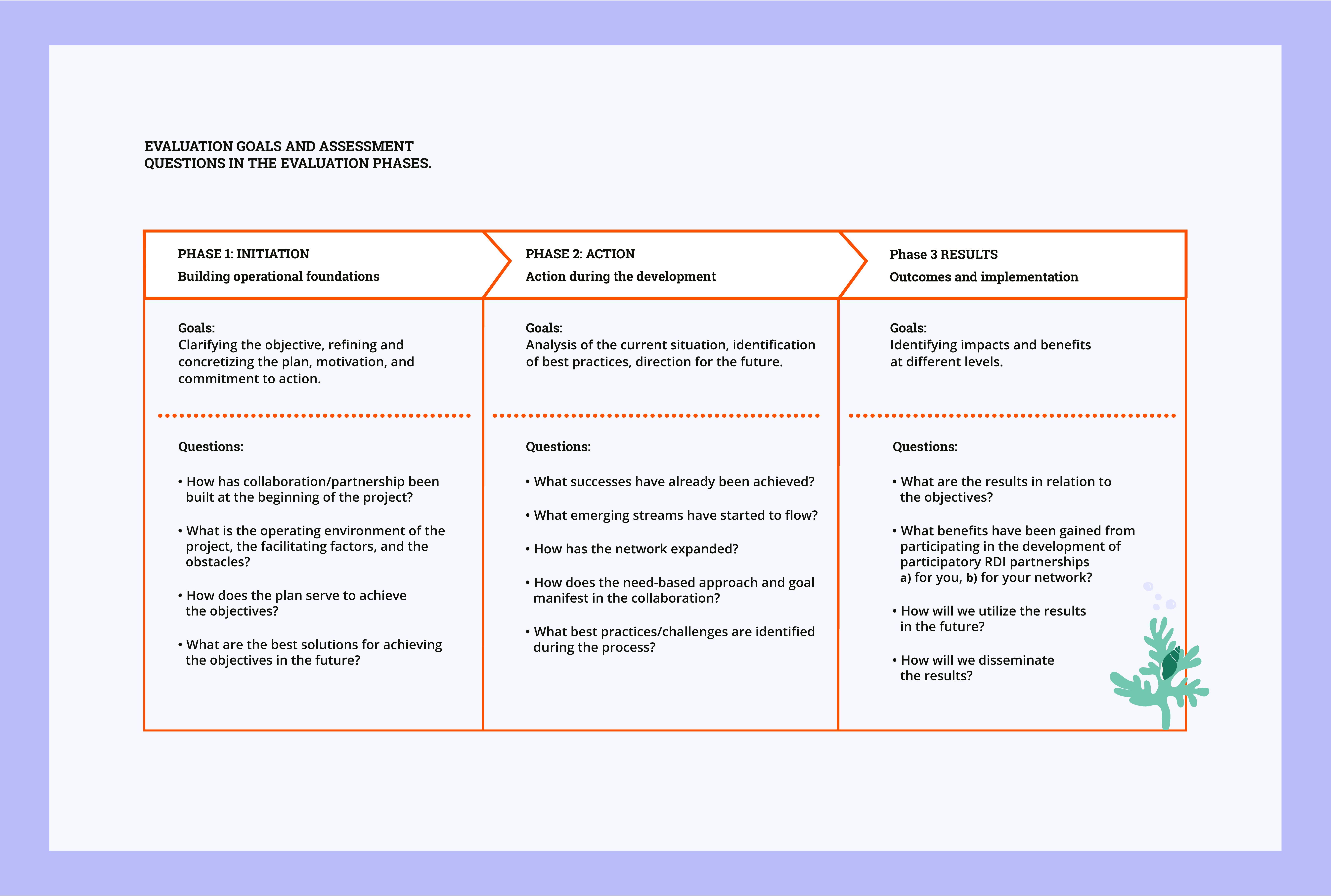
Figure 9. Evaluation goals and assessment questions in the evaluation phases.
The evaluation data was collected through reflective group discussions during meetings and recorded as written outputs, which were then validated by the participants collectively. The implementation of group discussions utilised a 'peer facilitation' approach, where facilitators from another project or team at Metropolia were invited to design and facilitate the evaluation discussions, allowing project participants to engage in the evaluation themselves. Various methods were used to structure the discussions, such as the application of the SWOT analysis method and future retrospection.
The evaluation data was analysed using a quadrant model, and the results were utilised to guide the progression of the development process in the subsequent phases and after the project’s conclusion (Figure 10).
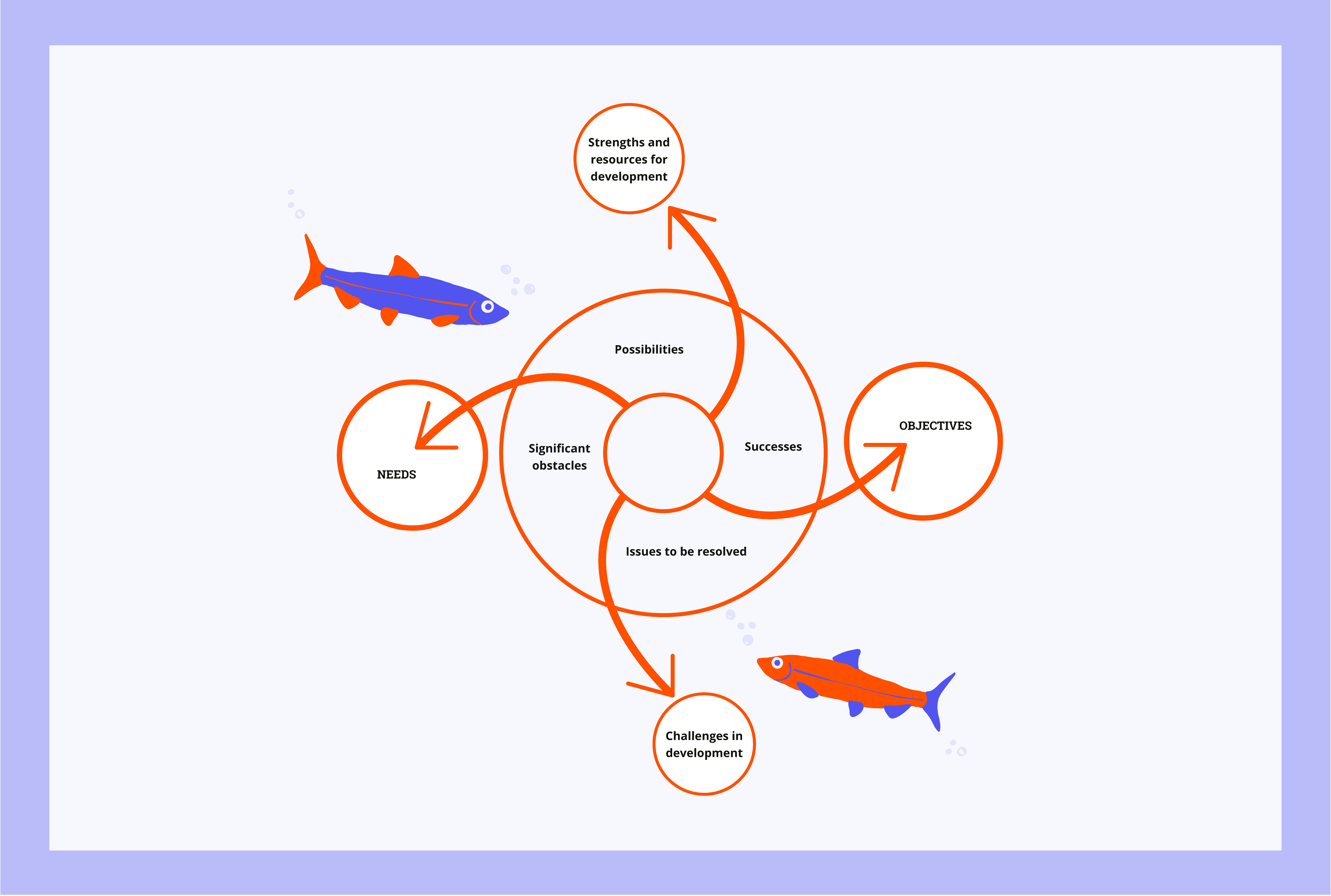
Figure 10. Quadrant model for analysing the evaluation data.
In the initiation phase of the development activities, 13 strengths and resources for development were identified, such as enthusiastic and skilled team, strong networks, and collaborative development. Similarly, 13 challenges and areas for improvement in development were identified. The challenges focused on the creation of a shared understanding of the complex topic and process, effective communication, and leveraging existing strengths.
During the action phase of the development activities, 17 factors related to development resources and strengths were identified, emphasising future forecasting, diverse and extensive networks, and the identification of existing good practices and positive change. Eleven factors highlighted challenges encountered during development, including reconciling various interests, operationalising activities, and building a shared understanding and vision.
In the result phase of the development activities, 14 comprehensive factors were identified as resources and strengths. These encompassed future-oriented practices, the construction of shared understanding and RDI culture, and unexpected outcomes that opened up new development ideas, projects, and RDI focal points. Eight challenges were described, including the difficulty of digital development in complex phenomena, organisational silos, and the continuity of development after the project.
The results of the evaluation demonstrate the progression of a phased and iterative process and the interconnectedness of the stages. The benefits of the guiding 3x3 process evaluation can be seen in the evaluation results.
A summary and reflective discussion on the evaluation were held within the steering group at the conclusion of the project. From this discussion, a shared overview was produced in relation to what was learned from the evaluation in the direction of the project's objectives. The summary and reflection discussion of the evaluation are illustrated in Figure 11.
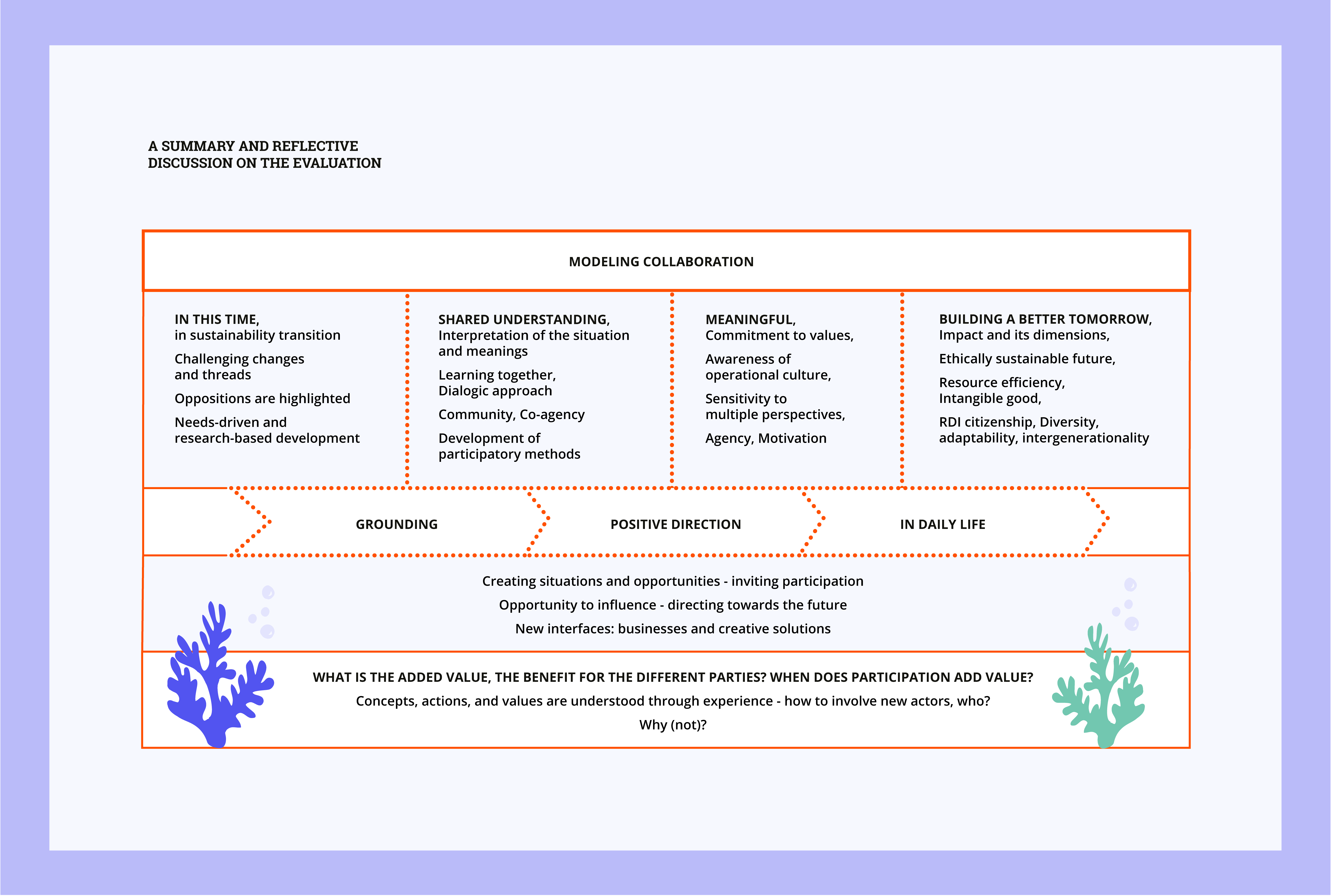
Figure 11. A summary and reflective discussion on the evaluation.
The purpose of the project was to build participatory RDI partnership at Metropolia University of Applied Sciences and its networks to promote sustainable well-being.

Participatory RDI partnership development and conceptualisation have provided a new perspective on the future. The multifaceted and multi-phase development has unveiled the factors necessary for future-oriented, sustainable change-promoting, and impactful RDI partnership. Partnerships and shared aspirations do not emerge on their own nor do they sustain without attractive, authentic and continuously evolving collaboration. Collaboration requires time, space, and effort but yields empowerment of individuals and communities, collective expertise, and transformative learning – and this is where the potential of collaboration lies in bringing about significant and meaningful change.
Three key elements were identified as the cornerstones of futureproof RDI partnership: a joint mission guiding the direction of collaboration; justice, manifested as equitable opportunity to participate and influence; and joy, arising from collective efforts to achieve meaningful goals. These elements enable curious exploration, development, and learning together (co-curiosity) to build a sustainable transformation for a desirable future (Figure 12).
For more information on co-curiosity and building justice, joy and joint mission into RDI partnerships, refer to the publication: Ritvos, R., Sipari, S., Vilkuna, A-M. & Vänskä, N. 2024. Co-curiosity – building justice, joy and joint mission into RDI partnerships (Theseus).

Figure 12. Co-curiosity towards sustainable transformation for desirable future.
The evaluation framework for participatory RDI partnership provides an opportunity to advance collaboration that strengthens equitable participation, integrates diverse expertise, and fosters systemic development. In the future, it will be important to invest in research and implementation of evaluation in various contexts, as well as in digital applications of the evaluation.
Addressing systemic and complex challenges requires new types of RDI partnership that do not exclude but invite participation. In order for everyone to have an equal opportunity to influence the building of a better future, it is our responsibility to also identify those stakeholders and perspectives that are not yet represented in collaboration. One shared challenge to tackle is how we can enhance the participation of, for example, young children, future generations, or natural entities in shaping the trajectories of a good future and potential futures. Innovative approaches and inclusive co-creation forms are still needed to enable the engagement of new partners in collaboration and the diversification of perspectives.
Developmental activities have also highlighted a new need for RDI expertise. Futureproof and impactful RDI partnership require an understanding of systematicity and the planetary dimension within individual, community, and societal levels. The integration of diversity expertise culminates in transformative leadership of co-action in RDI ecosystems.
Offering study possibilities for expertise related to the management and development of RDI partnerships and processes both as part of degree programs and as opportunities for lifelong learning is an important step to take in the future.
This publication has emerged from the results of multi-phase and multi-perspective co-development efforts and joint endeavours to build partnership-based, inclusive and futureproof RDI activities at Metropolia and its networks. There have been several collaborative partners in the development, and we warmly thank all participants:
© Metropolia University of Applied Sciences 2024
Authors: Salla Sipari, Nea Vänskä, Sari Helenius
Technical implementation: Jussi Linkola
Illustration: Tanja Kallio, Muotografia
Publisher: Metropolia University of Applied Sciences
Publications of Metropolia UAS
TAITO-series 143
Helsinki 2024
ISBN 978-952-328-435-7
ISSN 2669-8021

This work is licensed under a Creative Commons Attribution-NonCommercial-ShareAlike 4.0 International license excluding its images.
This publication was part of a project developing participatory RDI (research, development and innovation) partnership culture and activities for sustainable well-being in Metropolia University of Applied Sciences (UAS) and RDI networks. Metropolia UAS received RDI profiling funding from the Ministry of Education and Culture (2021-2024).
![]()